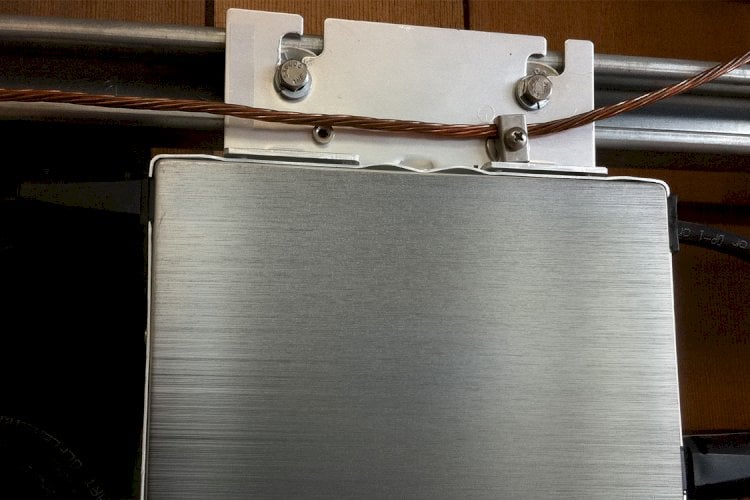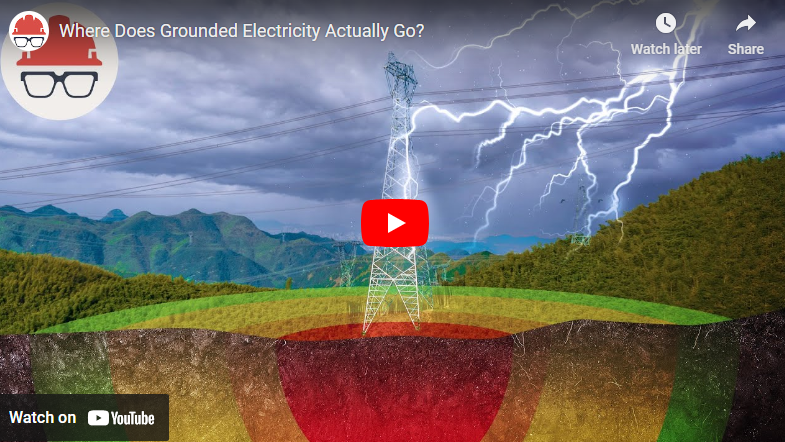Many people treat the NEC as if it’s the infallible word of some all-knowing electrical engineer (I wish it was). When in reality it’s written by committees that are full of political operatives, business people, and a few electrical engineers, who are often swayed by whoever happens to be the loudest spokesperson in the room, with little to no governing oversight.
Back in the 1990’s when I started working in the Grounding and Earthing field, we were using some much more sophisticated definitions for what the terms “ground” and “earth” meant. Recently, while doing some research for a blog post, I went to reference the National Electrical Codes (NEC) definition for “ground”, and I was a bit shocked to find the following definition:
Ground. The earth.
Yes, it’s straight-forward and to the point. A bit blunt perhaps… definitely not a paragon of sophistication. Frankly, I am a bit surprised it doesn’t have a “duh” after it.
Now, before you accuse me of simply being harsh on the NEC (which I certainly am), just as a point of comparison, in IEEE Std. 142 we find the following definition:
Ground: A conducting connection, whether intentional or accidental, between an electrical circuit or equipment and the earth, or to some other body that serves in place of the earth.
In the British BS 7671 we find the following definition:
Earth. The conductive mass of the Earth, whose electric potential at any point is conventionally taken as zero.
Not to beat the point to hard here, but there are some significant and quite frankly, important differences between these three definitions that are worth discussing. In the IEEE and BS 7671 definitions we see three key statements:
- “weather intentional or accidental”
- “or to some other body that serves in place of the earth”
- “whose electrical potential at any point is conventionally taken as zero”
These three statements have some rather huge ramifications when you get into the details. As someone who is now entering his third decade working in the field of grounding and earthing on a full-time basis, I can tell you that accidental connections to the earth, often through an erroneous neutral-to-ground bond in a subpanel, is one of the leading causes of electrocutions in the United States (see NEC 250.6).
The statement of “some other body serving in place of the earth” or sometimes called a “mass” is incredibly important to understand when dealing with aircraft, cars and even GFCI and RCD systems. And of course, the British term of “an electric potential is conventionally taken as zero” has not only numerous scientific ramifications, but is needed for explanations of transient ground currents, ground potential rise events, scalar potentials, etc., and even has applications for how your standard multimeter works!
To make my point a little clearer, let’s take the definition for “effectively grounded” as found in IEEE Std. 142:
Effectively grounded: Grounded through a sufficiently low impedance such that for all system conditions the ratio of zero-sequence reactance to positive-sequence reactance (X0/X1) is positive and not greater than 3, and the ratio of zero-sequence resistance to positive-sequence reactance (R0/X1) is positive and not greater than 1.
Now, we won’t get into all the advanced engineering needed to explain the above definition, other than to say that when you are designing an airplane, a car on rubber wheels, or even the International Space Station, all of which are isolated from the earth, you’re going to need a little more than “ground = earth” if you’re going to properly deal with all of the advanced electronics found in today’s cars, airplanes and spacecraft.
Now to be fair to the National Electrical Code, they do also have the following definitions, which are at least a touch better:
Grounded (Grounding). Connected (connecting) to ground or to a conductive body that extends the ground connection.
Grounded, Solidly. Connected to ground without inserting any resistor or impedance device.
But again, these are fairly disappointing definitions and frankly are not very useful. Replace the word ground with earth, and you will see what I mean. I could list the equivalent definitions of other standards, which I won’t do here, and you would find that these definitions are a bit simplistic for the modern world we live in.
So why have I wasted your time yet again ragging on the National Electrical Codes deficiencies? Honestly, it’s because many people treat the NEC as if it’s the infallible word of some all-knowing electrical engineer (I wish it was). When in reality it’s written by committees that are full of political operatives, business people, and few electrical engineers, who are often swayed by whoever happens to be the loudest spokesperson in the room, with little to no governing oversight.
And even when the NEC is working at its best, conducting its business with rigger and integrity (which I am sure they do all the time), these committees are often voting on changing a single line item within a bigger Code infrastructure, without considering (or even knowing) what those ramifications will be for other related topics. Forgive me for being concerned, but the absolute bottom foundational items of any Code are its definitions, and when those critical definitions have fundamental issues with them, you can rest assured that the future Code writers will continue to carry those flaws forward, extending them throughout its text.
This is one reason why the NEC is riddled with electrical engineering errors, outdated methods, and practices, and often has self-serving codes designed to protect certain industries. It is also why you hear stories of how the NEC won't even look at the methods and practices of other countries to see if they have found better and safer solutions that could be made available to us.
For goodness’s sake, the Code writers won’t even use the term “earthing” to help clarify the complex grounding issues found in our Code, because the Europeans use that word. When are we going to stop only accepting good ideas if they come from a politically proper source, and start looking at the ideas for their merits of their concepts?
Childish political nonsense explains much of what we find in the Code. Which probably explains whey we see the definition, “Ground. The earth.” Duh.





